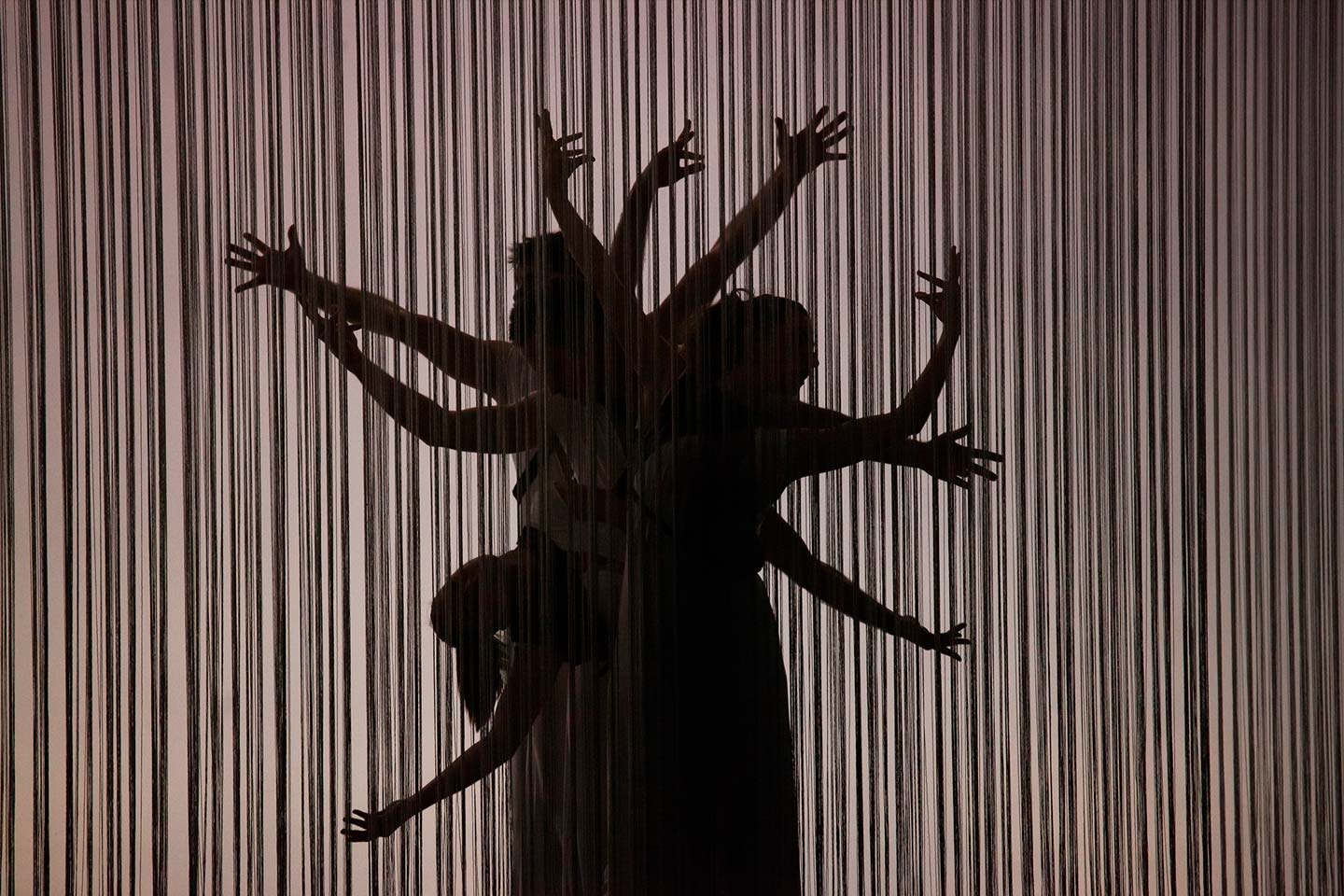About dFERIA
dFERIA, the Performing Arts Fair of Donostia / San Sebastián, is an unmissable event and a clear national reference point for professionals in the performing arts. Promoted in 1988 by the San Sebastian City Council and Donostia Kultura, the San Sebastian fair is firmly committed to artistic quality in the selection and exhibition of the theatre and dance shows presented.
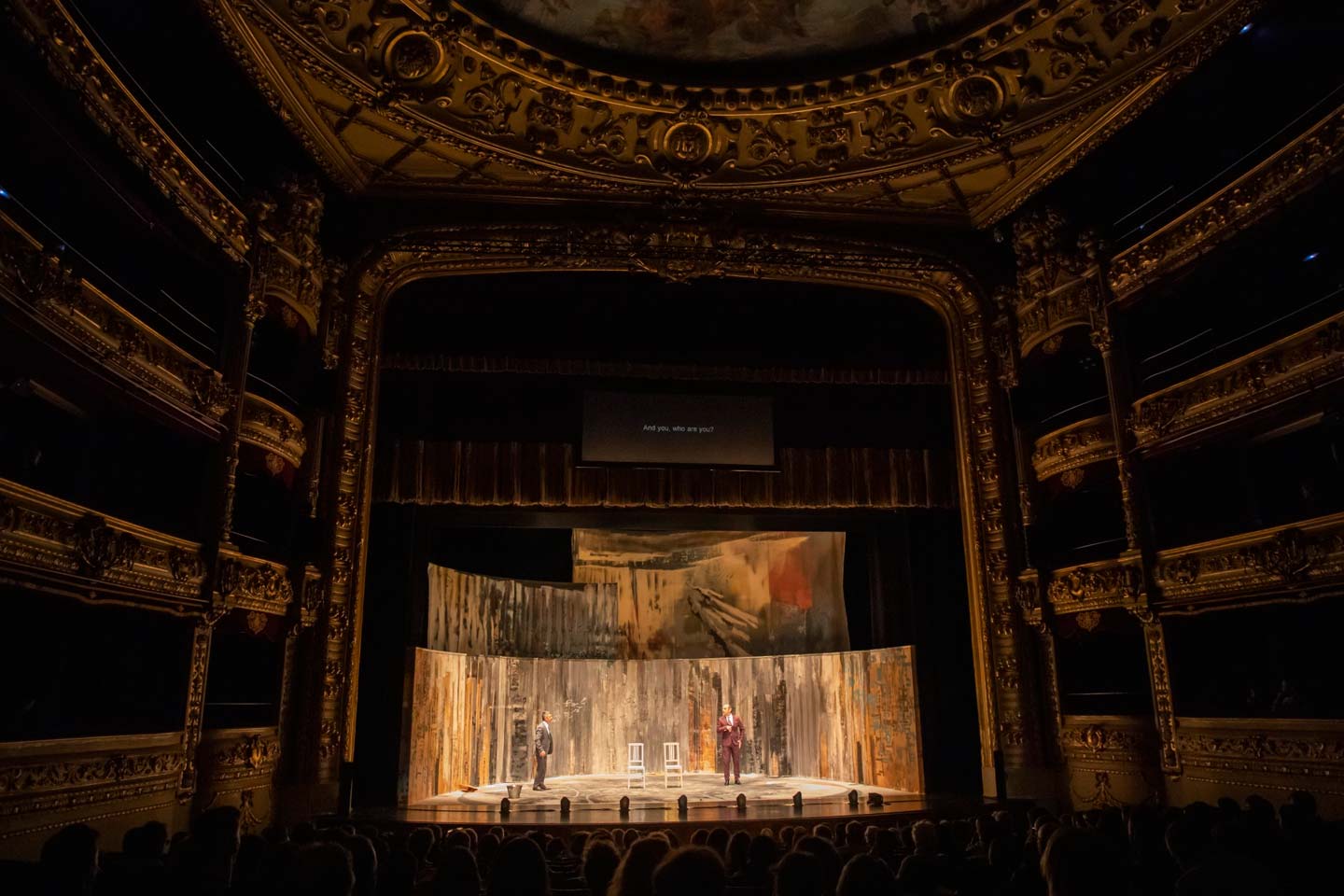
dFERIA, which is associated with the Coordinadora de Artes Escénicas del Estado (COFAE), is a contemporary, innovative, committed, varied and innovative fair that continues to strengthen its Latin American and European markets. At the same time, it is an extraordinary meeting platform for different agents in the sector, which promotes multiple possibilities for the exchange of experiences and artistic contracts. With the aim of dynamising the performing arts market, mediating and interrelating its agents and providing novelty and innovation, it generates, directly or indirectly, an important volume of business.
Each edition of dFERIA revolves around a thematic axis that becomes the backbone of the exhibition and parallel activities.
Which spaces is it held in
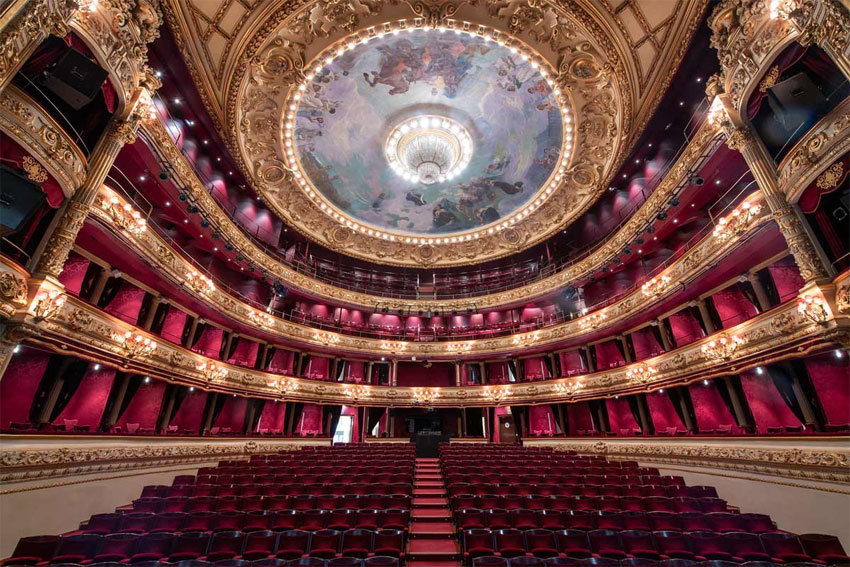
The Victoria Eugenia Theatre was opened in 1912. In this way San Sebastián added a second theatre to the oldest one in the city, the Teatro Principal. Since then, the Victoria Eugenia has been the main venue in San Sebastián, and has hosted the most important cultural events held in the city. The Victoria Eugenia Theatre, with a capacity of 888 seats, is the headquarters of the Fair and its most emblematic building.
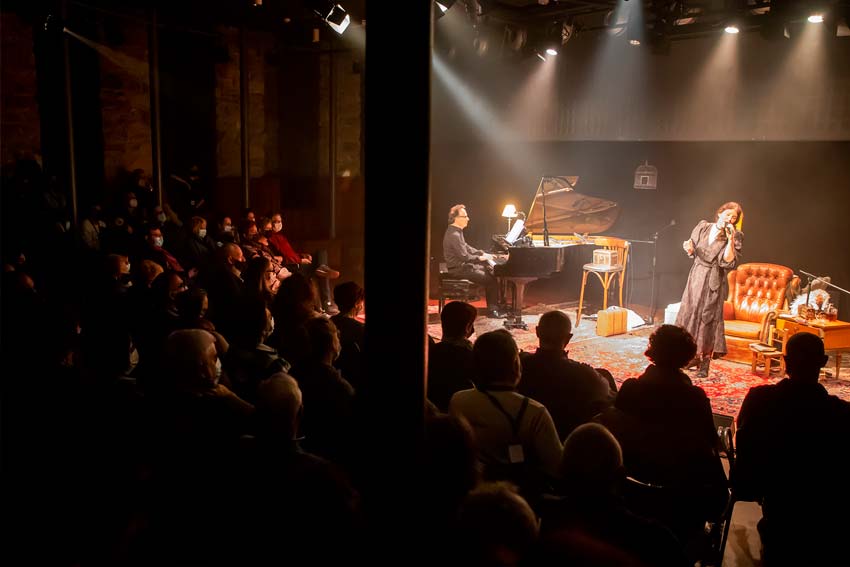
The Club Room at the Victoria Eugenia Theatre emerged after the complete refurbishment that was carried out in the theatre between 2001 and 2007. The semi-circular Club Room, located under the stalls, is completely fitted out to hold small-format shows, presentations and events. It has an separate exterior entrance and is connected to the cafeteria. Its capacity varies between 120 seats or standing room for 180 people.
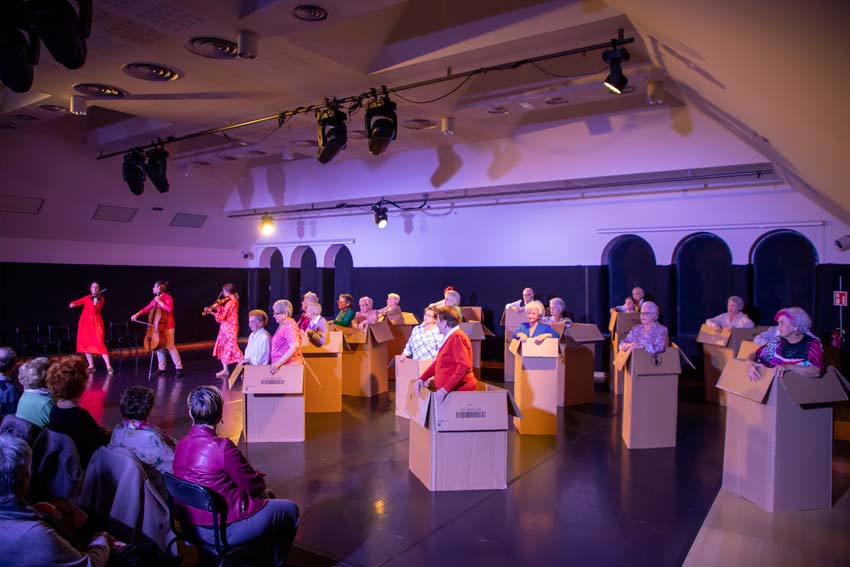
Victoria Eugenia Antzokia has a dance studio which can hold up to 80 people, where training sessions and masterclasses are offered and during the fair it has been the venue for its shows.
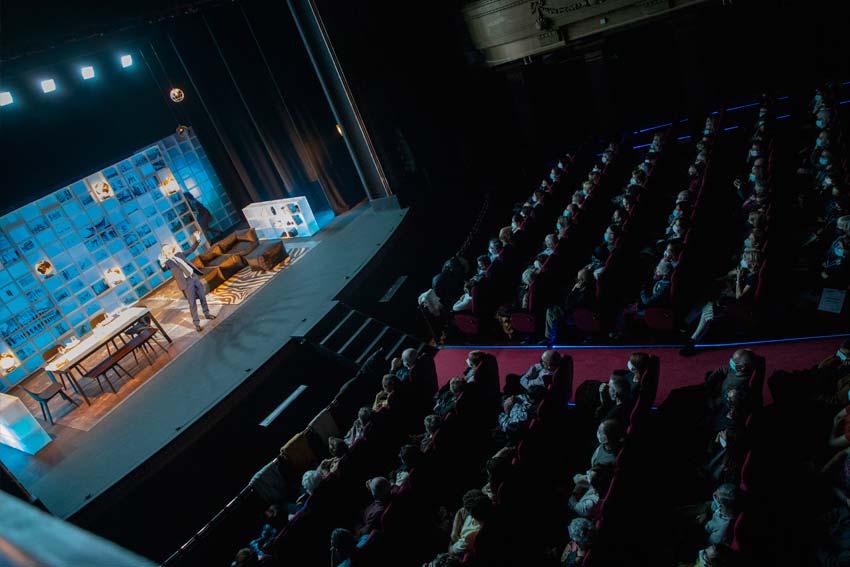
The Teatro Principal is the oldest theatre in the city and opened in 1850. It has a capacity of 500 seats. Its programme currently alternates cinema and theatre. As for the performing arts, not only its standard winter programme but also its commercial summer programme stands out. In its regular programme, renowned companies alternate with less conventional proposals, focusing especially on staging productions by Basque companies. It also has a children’s theatre programme. In its summer season the Teatro Principal hosts the most outstanding companies on the national theatre circuit.
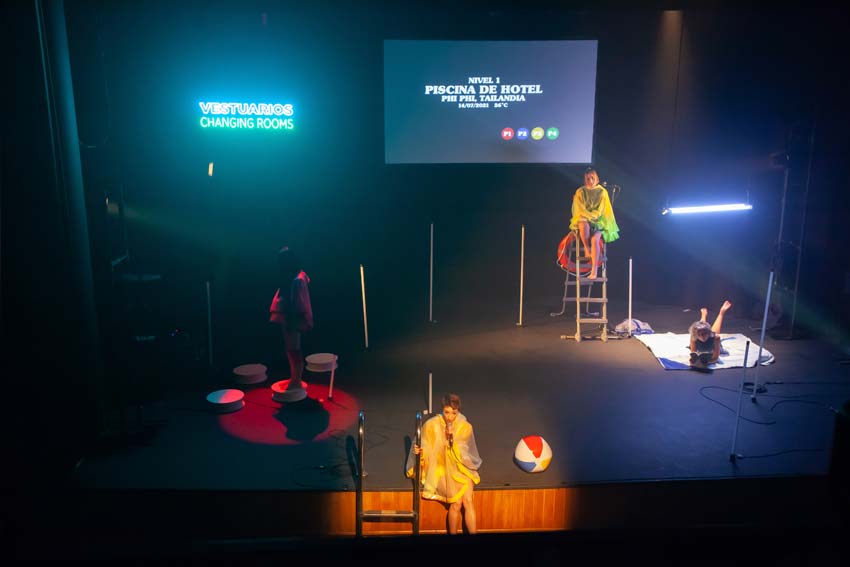
The Lugaritz kultur etxea opened in 1993 and was the first cultural centre to have a theatre in the city. The Imanol Larzabal hall can hold 240 people and specialises in small-format theatrical and musical activity, and children’s theatre, mainly in Basque.
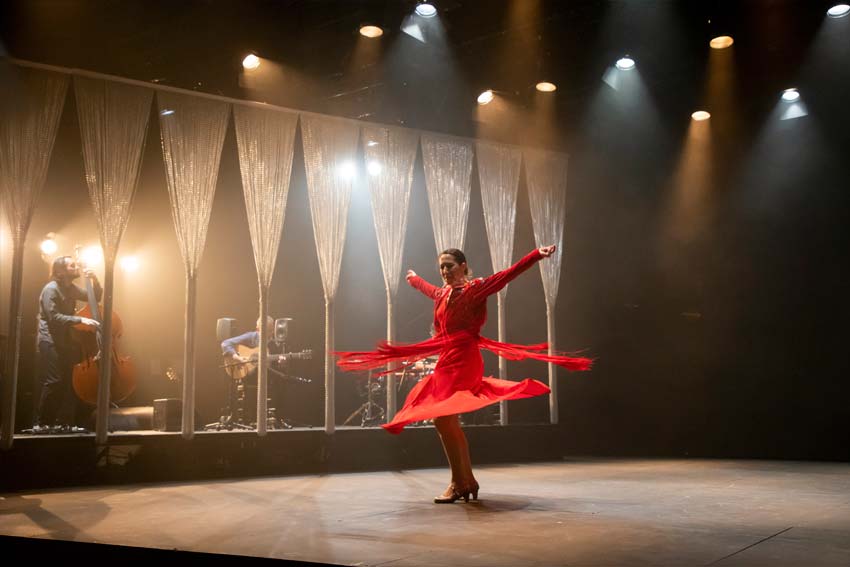
The Egia kultur etxea is a modern theatre that opened in 1998. The hall, called Gazteszena (joining together the terms stage and youth in Basque), is multi-purpose, so that it can offer a wide variety of stage events. It has a capacity of 255 seats or standing room for 700 people. All of its theatre programme particularly opts for the most avant-garde shows. It stands out for its modern dance programme and new multi-disciplinary proposals. The children’s theatre programme at Egia, mainly in Basque, is also a benchmark in the city.
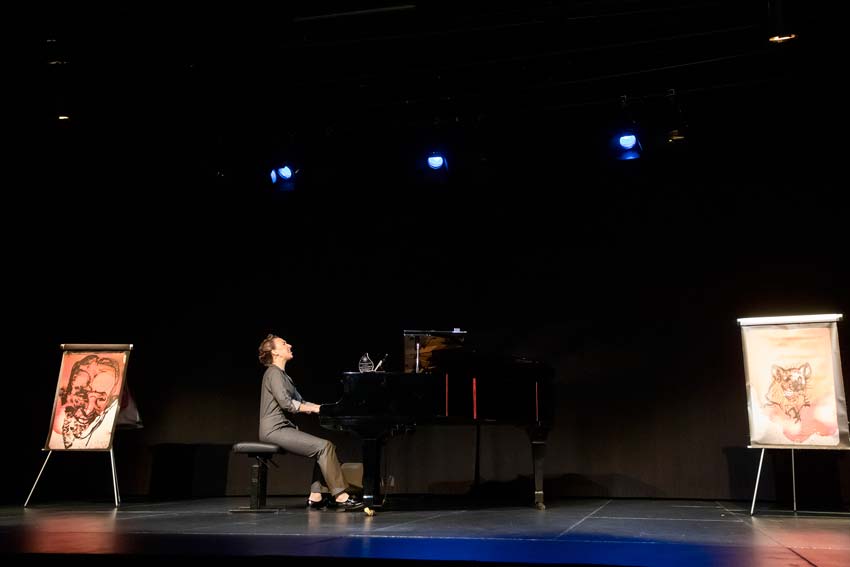
This is the most recent theatre to join the public network, it opened in 2011 and is located in the Intxaurrondo neighbourhood. It currently focuses on programming musical concerts, mainly on the Dkluba circuit, and is also committed to children’s theatre, mainly in Basque. The capacity is up to 500 people.
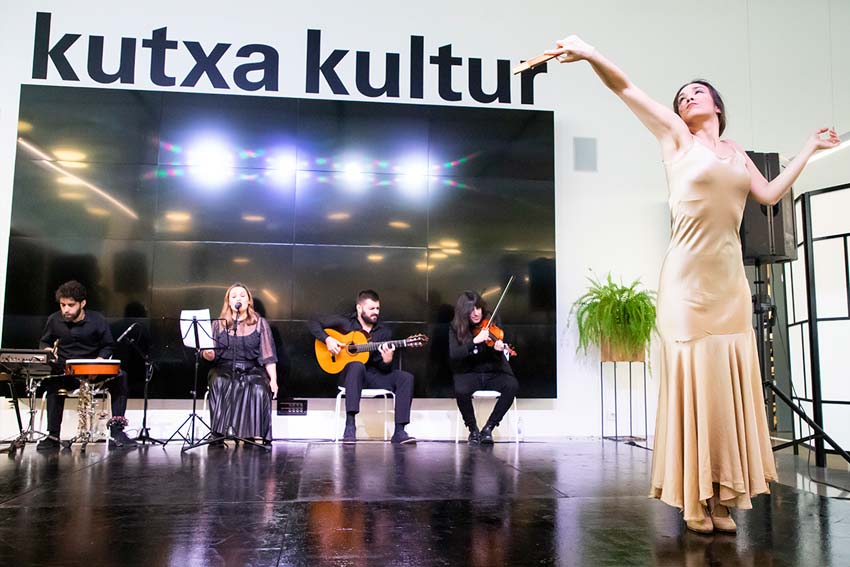
A dynamic, comfortable and easily adaptable space, with ever-changing projects and a multi-disciplinary exhibition hall in which anyone with something interesting to show can exhibit it. It usually hosts the dFERIA opening and welcoming ceremony. It can hold around 100 people.
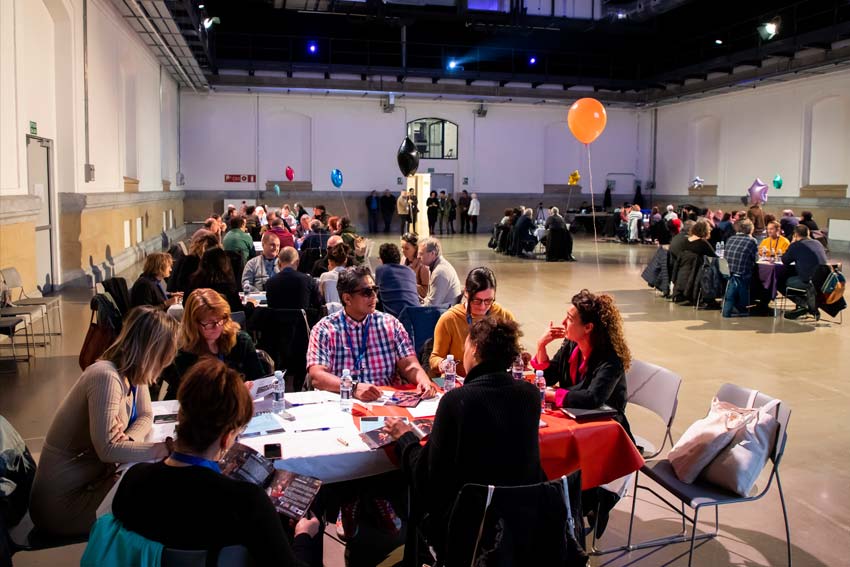
A multi-purpose space that retains features of the original building, as it occupies the surface of one of the four patios of the old tobacco factory. This open-plan, covered, 600-m2 space has a capacity of 400 seats for stage performances.
How can I attend as a professional
In order to attend the Fair as a professional you need to fill out a form that can be activated via this web page, between the months of January and February for each dFERIA.
Aspects to be kept in mind when registeringn
- Read the registration conditions for each year’s dFERIA carefully.
-
Fill out the registration form for professionals that we usually open between 4 and 8 weeks before the event. Part of the information that you provide on the form will be included in the attendance lists and will be shared with all the accredited professionals.
-
If your accreditation application has been received correctly, you will receive an automatic e-mail with all the information that you entered when you registered.
-
Once the registration period is over, at the coordination office all the applications will be reviewed and checked in order to accept those professionals whose lines of work match our programming profile, although we always try to strike a balance when issuing accreditations among different types of professionals (programmers, fairs and festivals, distributors, companies, media, others).
Keep in mind that the number of accreditations is limited (around 500 people). You will receive an e-mail informing you if your application has been accepted or not. Once your accreditation has been confirmed, you will receive the following notifications:
- A confirmation e-mail with information about your application, which will include the details that you entered when you registered. If you find any details that need correcting, write to us at:
This email address is being protected from spambots. You need JavaScript enabled to view it. . - If your application includes the payment of a sum of money for accommodation or your registration fee, don’t forget that you must pay this and send us the proof of payment. If we do not receive this receipt, your accreditation will be rejected and/or we will transfer your accommodation booking to another accredited professional.
- Once this has been confirmed, you will receive the login details to the dFERIA Professional Area between 1 and 2 weeks before the event.
- Before the Fair, you will receive some useful information about the event (where to pick up your accreditation, where to eat, etc). If you need any further information or if there is anything you are not sure about, do not hesitate to get in touch with us.
The registration period for professionals only opens once a year.
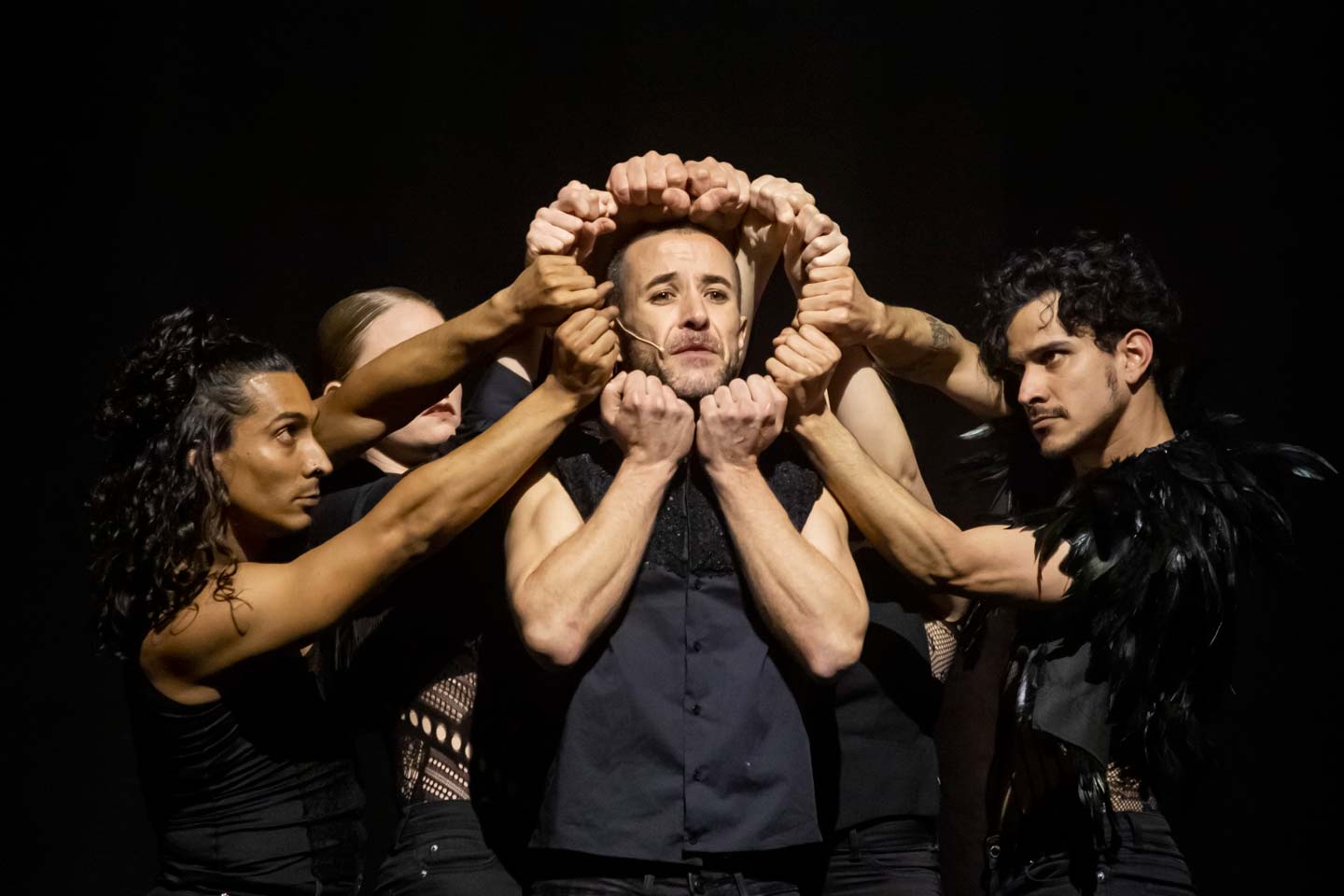
What does my accreditation cover
With your accreditation you will:
- Access to dFERIA Professional Area where you will find a list of registered professionals, a form to reserve tickets for shows, a registration form for professional activities and information of general interest for people attending the Fair.
- Access to shows depending on whether any seats are available in the following order of priority for all the activities and shows: programmers, fairs and festivals, distributors, others, press and companies.
- Access to professional activities.
- 1 meal a day in the restaurants that the Fair chooses.
Accreditations can be picked up at the meeting point in the plaza Okendo from the Sunday (in the afternoon) before the start of dFERIA and during the four days that the event lasts. If there is anything else that you need, please get in touch with the Fair team.
How can I take part with a show
To take part in the Fair with a show you need to send us your artistic proposal to this web page in its registration for companies section once is activated (around the summer).
Once the call for projects has closed, the artistic team checks all the material that they have received, and selects around 30 shows.
The programming line at dFERIA focuses on recently created avant-garde shows in all performing arts disciplines (theatre, dance, circus, performance,...) in small, medium and large format, with a special interest in contemporary dramaturgy and creations, aimed at young and adult audiences.
If you take part in the call for artistic projects, between December and January you will receive an e-mail in which you will be informed whether your proposal has been selected.
Team and contact
Artistic management
Director: Norka Chiapusso
Head of management and production: Iñaki Salaberria
Management and production support: María José Irisarri
Artistic team
Norka Chiapusso, Iñaki Salaberria, Nando Piñeiro, Lorenzo Pappagallo
Management team
Iñaki Salaberria, Koldo Domán, María José Irisarri, Idoia Montero, Ane Zufiaurre
Communication
Director: Jaione Askasibar
Press Officer: Maria Huegun
Team: Idoia Elso
Production
Director: José Ignacio Abanda
Coordinator: César Hernández
Technical director: Sergio López
Contact
dFERIA
Victoria Eugenia Antzokia
Reina Regente 8, 4º - 20004 Donostia / San Sebastián
Tel: 943 483860
General:
Communication:
Profesionals:
Companies/Hiring:
History
First stage (1988 - 1991)
The first four editions of the Fair, running from 1988 to 1991, straddled the months of January and February. Despite the differences between the first and second stages, the spirit of that first phase has remained intact. On the one hand, since the outset, one of the goals has been to open new markets and promote professional shows from the Basque Country, Spain and abroad. On the other, to bring the Fair itself to the locals and to inundate the city with theatre.
Second stage (1998 - 2006)
Following a 6-year break due to economic problems, the Fair was once again able to open its doors thanks to the drive and support of institutions such as the Spanish Ministry of Culture, the Basque Government Ministry of Culture, the Provincial Government of Gipuzkoa and San Sebastián City Council’s Municipal Culture Board. Returning to the project, the fifth edition of dFERIA was held in 1998. By then, San Sebastián had a series of new and better stages making for improved exhibition quality. This is when both Lugaritz and Gazteszena joined dFERIA, forming a network of spaces enabling a diversity of formats hitherto unknown.
Third stage (2007 - 2010)
In 2007 the Victoria Eugenia Theatre once again hosts dFERIA following extensive renovation work, providing the main venue for dFERIA as it had done in the past. Furthermore, dance joins dFERIA with full honours and the fair becomes an event for theatre and dance. Street theatre fluctuated during this stage; having been initially recovered, after the 2008 crisis, energies turned to the theatre proposals which are, at the end of the day, the identifying feature of the fair.
Fourth stage (2011-2018)
The Fair returns to its origins and moves from summer to winter and, with it, theatre events gain in relevance. The number of functions is multiplied, as is the number of accredited guests and audience figures. The parallel activities mainly focused on reflection and meetings between performing arts professionals take centre place. Similarly, the presence of the Basque language at the fair is promoted by the organisation, to the extent of enjoying much wider use than ever before.
25th anniversary (2019)
In 2019 dFERIA turns 25 and celebrates the event lavishly. Street theatre is recovered with a full and successful programme on the weekend leading up to the Fair. The loyalty of spectators in San Sebastián is secured thanks to a more varied price policy and the addition of season tickets for the two main stages (Victoria Eugenia Theatre and Principal Theatre). Thanks to the collaboration of public institutions and private bodies, the professional sector enjoys regular spaces for meetings, business forums, co-production projects, workshops and courses, and different kinds of presentations.
COVID-19 stage (2020 - 2021)
The year 2020 marked a before and after in life all over the planet. The pandemic sparked by the COVID-19 coronavirus changed our way of life and directly affected the performing arts sector. The 2020 edition of dFERIA closed on 12 March, just as lockdown was about to take hold. This was a strange edition; it went ahead relatively normally and only one company, Fabio Liberti from Italy, cancelled their performance on being unable to travel to San Sebastián. But there was an air of concern and many of those attending the Fair decided to go home early as the borders and theatres gradually start to close. The 2021 edition was undoubtedly very special given that it was the first one to raise the curtain in what is labelled as the “new normal”. It adapted to the measures dictated by the health authorities, always with the priority on guaranteeing the safety of the audience and artists, under strict measures of protection and hygiene.
Current stage (2022-today)
The 2022 edition proceeded with complete normality, returning to the figures of pre-pandemic editions. A new stage was opened in the history of dFERIA, and in 2024 Fair celebrates its 30th anniversary.
